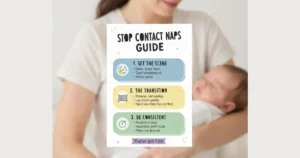My block is home to many young families, and there’s one family in particular that seems to follow a free-range parenting philosophy. Their children have been loudly yelling all day and night while playing in the street or sneaking into neighboring yards without permission and creating havoc in general.
Advocates of free-range parenting believe allowing their children to experience natural consequences builds confidence, creativity and independence; however, some misinterpret this style as permissive parenting.
1. Be Prepared
Though some free-range parents take this philosophy too far, most do a decent job of giving their children enough freedom and independence to learn how to cope on their own – this means not swooping in every time their behavior becomes problematic or they get into difficulty.
One way you can show them that you support their independence is by modeling it yourself. For instance, when they successfully prepare a meal on their own or build a fort with friends, encourage their skills by offering positive reinforcement – this helps children feel strong enough to take risks without you standing over them.
Helicoper parenting may encourage kids to spend more time playing outdoors and may help develop social skills; by contrast, helicopter parenting has been linked with an increase in childhood obesity rates and sedentary behavior.
Free-range parents encourage their children to spend more time playing outdoors or at the park with friends rather than being shuttled between violin lessons and soccer practice. Though these activities may appear simple, they help build children’s confidence, self-efficacy (belief that they can complete tasks on their own) and problem-solving skills. Parents can begin small by giving their kids freedom for chores like washing dishes or bike riding alone while gradually increasing the time alone; eventually building on these successes by adding more complex tasks like getting to school or work independently.
2. Trust Your Child
At the core of free-range parenting is trust. They believe that by letting their children take risks on their own, they will gain responsibility. This builds their confidence and self-reliance while simultaneously decreasing anxiety levels.
However, it’s essential to keep in mind that free-range parenting doesn’t equate to permissiveness. Effective free-range parents equip their children with the skills they need for survival in an uncertain world – from using maps and calling for help, to knowing their way around an unfamiliar neighborhood and even learning how to prepare a meal or ride a bicycle independently.
Still, parents have legitimate fears that children could get hurt while exercising these freedoms – this has long been a source of worry amongst their ranks – yet research indicates that modern-day children are far safer in unsupervised activities compared to earlier generations.
Still, many parents remain wary of Child Protective Services becoming involved when parents allow their children to roam free and play alone. This is a valid concern; to stay safe it’s essential to know your state laws as well as what would be safest for your family and talk with neighbors and friends before trying this type of parenting approach.
3. Be Flexible
Free-range parenting seeks to foster kids’ growth in confidence and independence by giving them more autonomy, but still providing safety nets. It draws inspiration from free-range cattle and chickens; which roam freely within an enclosed area without anyone monitoring them, but are provided food, water, shelter and protection from predators.
Lenore Skenazy coined the term “free-range parenting,” as she wasn’t an educator or therapist but instead used her experience and observations from motherhood to formulate her approach to free parenting. Skenazy asserts that our culture has become too helicopter-oriented, meaning children have less and less independence and self-sufficiency as a result of overprotective parents.
She advocates allowing kids to explore walking or riding public transit independently at an early age, once they can comprehend its risks. Furthermore, she advises engaging children in local community projects aimed at improving environmental conditions – for instance planting trees to slow traffic flow or installing speed bumps – or offering work experiences through local projects designed to create change within local neighborhoods.
While this approach may initially appear disorganized, it can prove highly fruitful for both parent and child alike. Without providing them with the skills they need to make sound decisions on their own when they become adults, they won’t have confidence enough to do it themselves.
4. Don’t Be Afraid to Say No
Free-range parenting refers to an approach of raising kids which gives them more independence than previous generations. It often means having less hovering parents (who will rush in at any moment to rescue) and letting children play freely outdoors without parental supervision.
Some have taken free-range parenting to extremes — like Lenore Skenazy who caused controversy after she allowed her 9-year-old son to ride the subway alone in New York City — yet this philosophy seems sensible: children experience natural consequences while learning on their own.
Of course, knowing when to say no can also be important; remembering children are still very young and inexperienced requires adult supervision. While that doesn’t necessarily involve wrapping your kids in bubble wrap, but having a plan in place when your children leave your home – such as leaving a card that explains you are free-range families as well as giving contact details should they need any assistance is one way of providing safety measures for when your kids are outside your home.
Free-range parents recognize that it can be daunting for them to let their children play alone in the park without close supervision, especially given today’s culture of overprotective parents and the fear that Good Samaritans might report the parent for neglect due to this happening in a park. That’s why one key component of their philosophy involves teaching kids independence while gradually decreasing close supervision over time.



